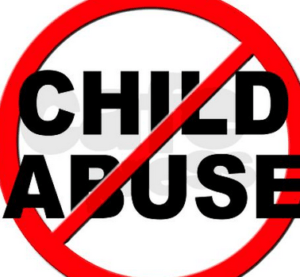Child protection system must reflect Ghanaian traditional values, standards – Lawyer
 The Legal Resource Centre (LRC) has recruited and trained fifteen individuals in the Central Region as Paralegals on innovative and improved methods of handling out of court settlement.
The Legal Resource Centre (LRC) has recruited and trained fifteen individuals in the Central Region as Paralegals on innovative and improved methods of handling out of court settlement.
A Paralegal is a community-based contact trained to give basic legal advice to communities with limited access to legal services.
The training was held in the context of the “Justice for Children: Bridging the Gap Between Legislation and Practice” project, which is being implemented by the LRC in collaboration with the European Union ((EU).
The project is aimed at strengthening capacities within the Juvenile Justice System, and ensure that the rights of children in conflict and in contact with the law were protected.
Participants were equipped with the necessary skills to be able to assess child related cases in a manner, geared towards the best interest of the child and in consistent with the law and human rights principles of the country.
Mr. Clarke Noyoru, a private legal practitioner and Resource Person for the training, stressed the need for Ghana to work towards building a more comprehensive child protection system that was suitable in the context of Ghanaian values.
“We are looking at child protection system where issues relating to children are more specifically related to the Ghanaian system, values and community ethics,” he said.
According to him, the current child protection system was modeled along the European context where the protection of the child is more of individual base as compared to the kind of protection system that existed previously.
He said the system had proved ineffective over time and was no more suitable to the needs of the Ghanaian child and stressed the need for it to be redefined to reflect the Ghanaian traditional values and standards.
“We should go back to the previous system where we have the whole community and family taking up the upbringing of the child. This will help reduce issues of child delinquency and make the child live in an environment which is concerned of it growth,” he said.
Regrettably, he noted, the Ghanaian society was more tilting to the nuclear family system, instead of the extended system which encouraged togetherness, care for one another and love.
“Within the Ghanaian context the protection of the child is more of community base and to this extent people were able to take responsibility of other people’s children. I always say that it takes an individual to bring forth a child but it takes a family and community to take care of that child,” he stated.
He said children must be made accountable for their actions and inaction but stressed that it should be done in a friendlier manner and devoid of corporal punishment which could cause harm to them.
“Children should not be subjected to any form of harm. Canning a child may not serve the purpose of punishing the child. We should be looking at the use of more positive steps to punish young ones when they go wrong”.
Mr. Joseph Esua Takyi, Regional Counsel for the Project, explained that the paralegals would be the conduit between the child and the judiciary to lessen the burden of children whose rights were being trampled upon.
He expressed worry about child maintenance issues which had become a major problem especially in the Central Region and stressed the need for it to be addressed.
Mr. Enock Jengre, the Project Officer, said LRC existed to develop the capacity of national policy, making human right institutions and work to link with community concerns to the institutions and ensure that less privileged people were considered in decision making.
He encouraged the paralegals to put what they have learnt into practice and ensure that children, the very foundation of Ghana’s future, were given every opportunity to become functioning and productive.
Source: GNA
